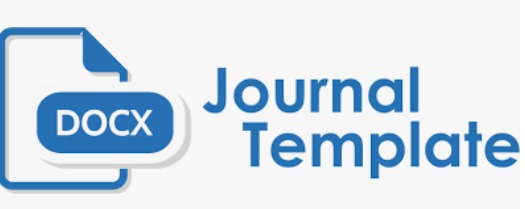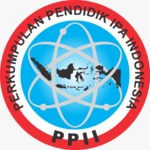Penerapan Model PBL Dalam Upaya Meningkatkan Kemampuan Scientific Reasoning Siswa Sekolah Dasar
DOI:
https://doi.org/10.29408/kpj.v6i2.7640Keywords:
Problem Based Learning (PBL), scientific reasoning, inquiry learningAbstract
The use of learning models that are not appropriate can cause students difficulties in stating a scientific reason. Students need to practice scientific reasoning skills such as thought processes to examine, understand, and criticize objects or phenomena. Scientific reasoning is one of the learning outcomes that should be trained on students because high scientific reasoning will affect students in making decisions and solving problems. It takes seriousness in practicing scientific reasoning skills. So the teacher must choose the appropriate learning approach. Scientific reasoning skills can be trained by teachers by applying inquiry-based learning, one of which is Problem Based Learning (PBL). PBL has five steps, namely: (1) orienting students to problems, (2) organizing students to learn, (3) guiding group investigations, (4) developing and presenting work, and (5) analyzing and evaluating the solution process. problem. The PBL model is a learning approach that emphasizes scientific learning, because by being given a problem and then students are required to solve it, students' scientific reasoning abilities will developReferences
Afcariono, M. (2008). Penerapan pembelajaran berbasis masalah untuk meningkatkan kemampuan berpikir siswa pada mata pelajaran biologi. Jurnal Pendidikan Inovatif, 3(2), 65–68.
Fakhriyah, F. (2014). Penerapan problem based learning dalam upaya mengembangkan kemampuan berpikir kritis mahasiswa. Jurnal Pendidikan IPA Indonesia, 3(1).
Fauziah, R., Abdullah, A. G., & Hakim, D. L. (2013). Pembelajaran saintifik elektronika dasar berorientasi pembelajaran berbasis masalah. Invotec, 9(2).
Giere, R. N., Bickle, J., & Mauldin, R. F. (1979). Understanding scientific reasoning.
Hung, W., Jonassen, D. H., & Liu, R. (2008). Problem-based learning. In Handbook of research on educational communications and technology (pp. 485–506). Routledge.
Karplus, R., & Butts, D. P. (1977). Science teaching and the development of reasoning. Journal of Research in Science Teaching, 14(2), 169–175.
Kuhn, D. (1989). Children and adults as intuitive scientists. Psychological Review, 96(4), 674.
Kwan, A. (2009). Problem-based learning. In The Routledge international handbook of higher education (pp. 91–108). Routledge.
Lawson, A. E., Alkhoury, S., Benford, R., Clark, B. R., & Falconer, K. A. (2000). What kinds of scientific concepts exist? Concept construction and intellectual development in college biology. Journal of Research in Science Teaching: The Official Journal of the National Association for Research in Science Teaching, 37(9), 996–1018.
Nasional, D. P. (2007). Pedoman Penjaminan Mutu Sekolah/Madrasah Bertaraf Internasional pada Jenjang Pendidikan Dasar dan Menengah. Jakarta: Depdiknas.
Noer, S. H. (2010). Peningkatan kemampuan berpikir kritis, kreatif, dan reflektif (K2R) matematis siswa SMP melalui pembelajaran berbasis masalah. Universitas Pendidikan Indonesia.
Nur, M. (2011). Model pembelajaran berdasarkan masalah. Surabaya: Pusat Sains Dan Matematika Sekolah UNESA.
Reiser, B., Duschl, R. A., Schweingruber, H. A., & Shouse, A. W. (2007). Taking science to school: Learning and teaching science in grades K-8. Committee on Science Learning, Kindergarten through 8th grade: National Research Council, Board on Science Education, Division of Behavioral and Social Sciences and Education.
Sadia, I. W. (2008). Model pembelajaran yang efektif untuk meningkatkan keterampilan berpikir kritis (suatu persepsi guru). Jurnal Pendidikan Dan Pengajaran Undiksha, 2(2), 19–237.
Santyasa, I. W. (2007). Model-model pembelajaran inovatif. Universitas Pendidikan Ganesha.
Shofiyah, N., Supardi, Z. A. I., & Jatmiko, B. (2013). Mengembangkan penalaran ilmiah (scientific reasoning) siswa melalui model pembelajran 5e pada siswa kelas X SMAN 15 Surabaya. Jurnal Pendidikan IPA Indonesia, 2(1).
Siregar, Y. (2015). Kompetensi guru dalam bidang strategi perencanaan dan pembelajaran Matematika. Formatif: Jurnal Ilmiah Pendidikan MIPA, 3(1).
Suma, K. (2010). Efektivitas pembelajaran berbasis inkuiri dalam peningkatan penguasaan konten dan penalaran ilmiah calon guru fisika. Jurnal Pendidikan Dan Pengajaran, 43(6), 47–55.
Timmerman, B. E. (2008). Peer review in an undergraduate biology curriculum: Effects on students’ scientific reasoning, writing and attitudes. Curtin University.
Zed, M. (2004). Metode peneletian kepustakaan. Yayasan Obor Indonesia.
Zimmerman, C. (2000). The development of scientific reasoning skills. Developmental Review, 20(1), 99–149.









